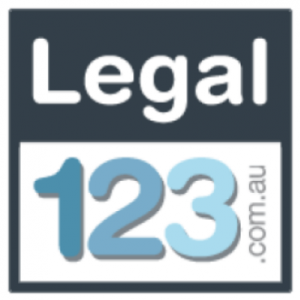
The Legal Mistakes Small Businesses Make on Their Websites
Setting up a website? Take note! You might be making some legal mistakes that could cost your business dearly. Small businesses often overlook these crucial aspects, risking lawsuits, fines, and damaged reputations. Let’s explore the legal mistakes small businesses make on their websites.
Before you freak out, here is my amazing go-to for all legals requirements – Legal123.com.au, you will find all you need here. I highly recommend them.
Now, let’s get to it. Here’s a jaw-dropping look at the top legal pitfalls you need to make sure you’re avoiding.
Privacy Policy? What’s That?
You won’t believe how many businesses neglect to include a privacy policy on their websites. This vital document outlines how you collect, use, and protect user data. Without it, you’re playing with fire, risking massive fines and legal battles. Don’t make this rookie mistake!
According to Legal 123 all Australian websites need a Privacy Policy.
Privacy legislation, whilst not legally required (yet), I would strongly encourage you to play it safe, especially if you’re collecting any customer or website visitor information:
- Email addresses
- Physical addresses
- Telephone numbers
- Credit card numbers, etc.
So even if you have a basic Contact Form on your website, you MUST have a Privacy Policy.
No Terms and Conditions? You’re Asking for Trouble
Are you running your website without terms and conditions? This is a ticking time bomb! T&Cs protect you from liability and set the rules for user conduct. Without them, you’re leaving your business wide open to disputes and potential lawsuits.
According to Legal 123:
“Website Terms & Conditions are a legal notice which states the terms that visitors, users and customers of your website must agree to in order to browse your website or use your products and services.
It protects you from customers claiming to have suffered loss from your content or using your products or services. It also protects you from visitors to your website copying your content, claiming damages from viruses, etc. It is intended to cover visitors, users, purchasers of your products and subscribers to your services.
Website Ts&Cs are intended for users, subscribers and customers of your website. By contrast, a Website Disclaimer is less comprehensive and just intended for general website visitors.”
Ignoring Cookie Consent: A Recipe for Disaster
If you think cookies are just a sweet treat, think again! Failing to get user consent for cookies can lead to severe penalties, especially under GDPR. Don’t get caught in this trap—implement a cookie consent banner now!
You can learn more about comply with GDPR here.
Copyright Infringement: The Silent Business Killer
Using images and content without permission? You’re flirting with copyright infringement! Many small businesses make this costly mistake. Always use properly licensed material or create your own to stay on the right side of the law.
Here is a great infographic explaining what you need to know.
Source: Copyright Infringement: Myths vs Facts from Legal123.com.au
Data Security Failures: Are You Next in Line for a Breach?
Data breaches are rampant, and your business could be next. Failing to secure user data isn’t just irresponsible—it’s illegal! Implement robust security measures to protect your customers and your business from devastating consequences.
E-commerce Errors That Could Bankrupt You
Selling online? You better be compliant with e-commerce regulations! From clear pricing to transparent return policies, there are numerous rules to follow. Don’t let ignorance cost you—get your e-commerce house in order.
Email Marketing Mishaps: Are You Breaking the Law?
Think you can send marketing emails without consequences? Think again! Laws like the CAN-SPAM Act require explicit consent and an easy opt-out option. Violate these rules, and you could face hefty fines and a damaged reputation.
Outdated Policies: A Lawsuit Waiting to Happen
When was the last time you updated your website’s legal policies? Outdated policies can lead to legal troubles. Regularly review and update your policies to stay compliant and protect your business from unexpected legal challenges.
DIY Legal Documents: A Recipe for Legal Disaster
Using generic legal templates? This could be your downfall! Poorly drafted documents might not cover your specific needs, leaving you vulnerable. Invest in professional legal advice to safeguard your business from potential disputes.
Don’t let these shocking legal mistakes derail your small business! By addressing these pitfalls, you can protect your business, build trust with your customers, and focus on growth. Stay vigilant, stay compliant, and watch your business thrive.
Again, let’s not panic and just get it fixed now. I always recommend to my clients when building their website to reach out to Legal 123 for everything they need.
I do encourage you to take the time to learn about these key elements and ensure you are in compliance. And if you get stuck, reach out to Legal 123.










